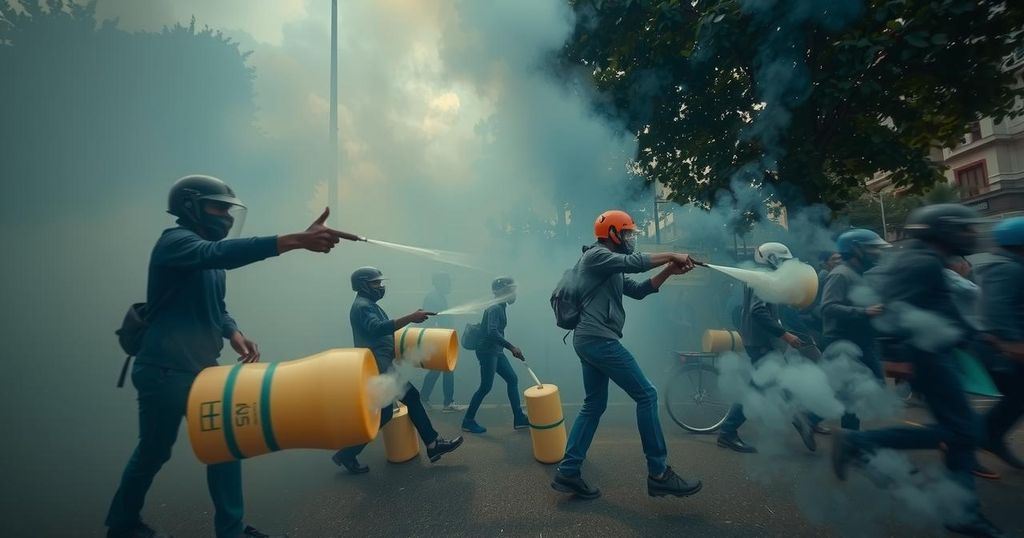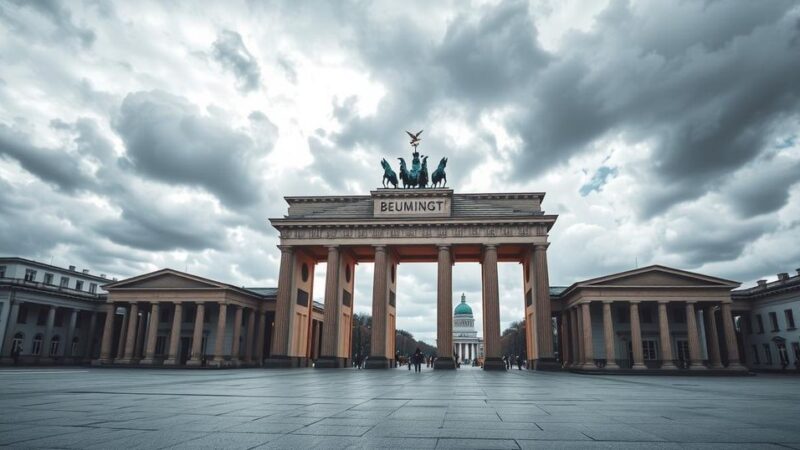Mozambique police used tear gas against opposition leader Venancio Mondlane amidst rising tensions following disputed elections and the murders of two opposition figures. Mondlane, an independent candidate supported by Podesa, planned protests against alleged electoral fraud. Violence has increased concerns regarding civil rights and justice in Mozambique, with the EU and UN calling for investigations into the killings.
On Monday, Mozambique’s law enforcement officers discharged tear gas at prominent opposition leader Venancio Mondlane and his supporters while he was addressing reporters in Maputo. This incident occurred amid escalating tensions following the recent elections and the tragic murders of two key opposition figures. Mondlane, who was a presidential candidate in the disputed elections of October 9, had positioned himself as the principal challenger to the long-standing ruling party, Frelimo. During the confrontation, a video shared on Mondlane’s Facebook page depicted the chaotic scene where he, along with aides, supporters, and journalists, were compelled to flee as tear gas canisters erupted nearby. Reports indicate that at least one journalist sustained injuries in the fray. Earlier, Mondlane had advocated for a national shutdown in protest against what he and others characterized as fraudulent elections. His plan involved a gathering near the site of the recent killings, which involved the deadly ambush of his lawyer and a senior party official by unidentified assailants. The ongoing political strife coupled with the brutal murders has heightened public anxiety. Preliminary results from the elections suggest a significant lead for Daniel Chapo of Frelimo, who would replace President Filipe Nyusi, should he secure victory. Notably, the deaths of the two opposition members have been interpreted as politically charged; one of the deceased, Elvino Dias, played a vital role in efforts to contest the election outcomes. The European Union has called for an urgent investigation into the killings, urging accountability for what they termed an egregious violation of justice. Similarly, United Nations Secretary-General António Guterres condemned the violence. Accusations of electoral malpractice have historically plagued Frelimo, although they have persistently denied these claims. Furthermore, Mozambique’s security apparatus has faced scrutiny for its harsh responses to public dissent. In anticipating the protests, Mondlane reported being restrained by police attempting to detain him at his residence. In his own words, he recounted, “The whole of last night, police cars were at my doorstep. I was trying to find other ways to leave the house without being noticed. I did. I won’t say how.”
The backdrop of this incident is set against Mozambique’s tumultuous political landscape, characterized by a legacy of conflict and unrest since the country’s independence from Portugal in 1975. The ruling Front for the Liberation of Mozambique party, known as Frelimo, has maintained control for nearly half a century, leading to widespread discontent and allegations of electoral malfeasance. The recent presidential election on October 9 was marred by claims of fraud, culminating in tragic violence that has intensified protests against Frelimo’s governance. The murders of opposition figures have sparked outrage and calls for justice, with international observers urging for accountability and transparency in handling these events.
The recent violence in Mozambique highlights the deep-seated tensions following the disputed presidential election, with increased scrutiny on the ruling party’s conduct and the treatment of opposition figures. The police violence against Venancio Mondlane and his subsequent protests underscore the ongoing struggle for political freedom and justice in the nation. As the international community demands answers regarding the recent killings, the situation in Mozambique remains precarious and fraught with the potential for further unrest.
Original Source: apnews.com






